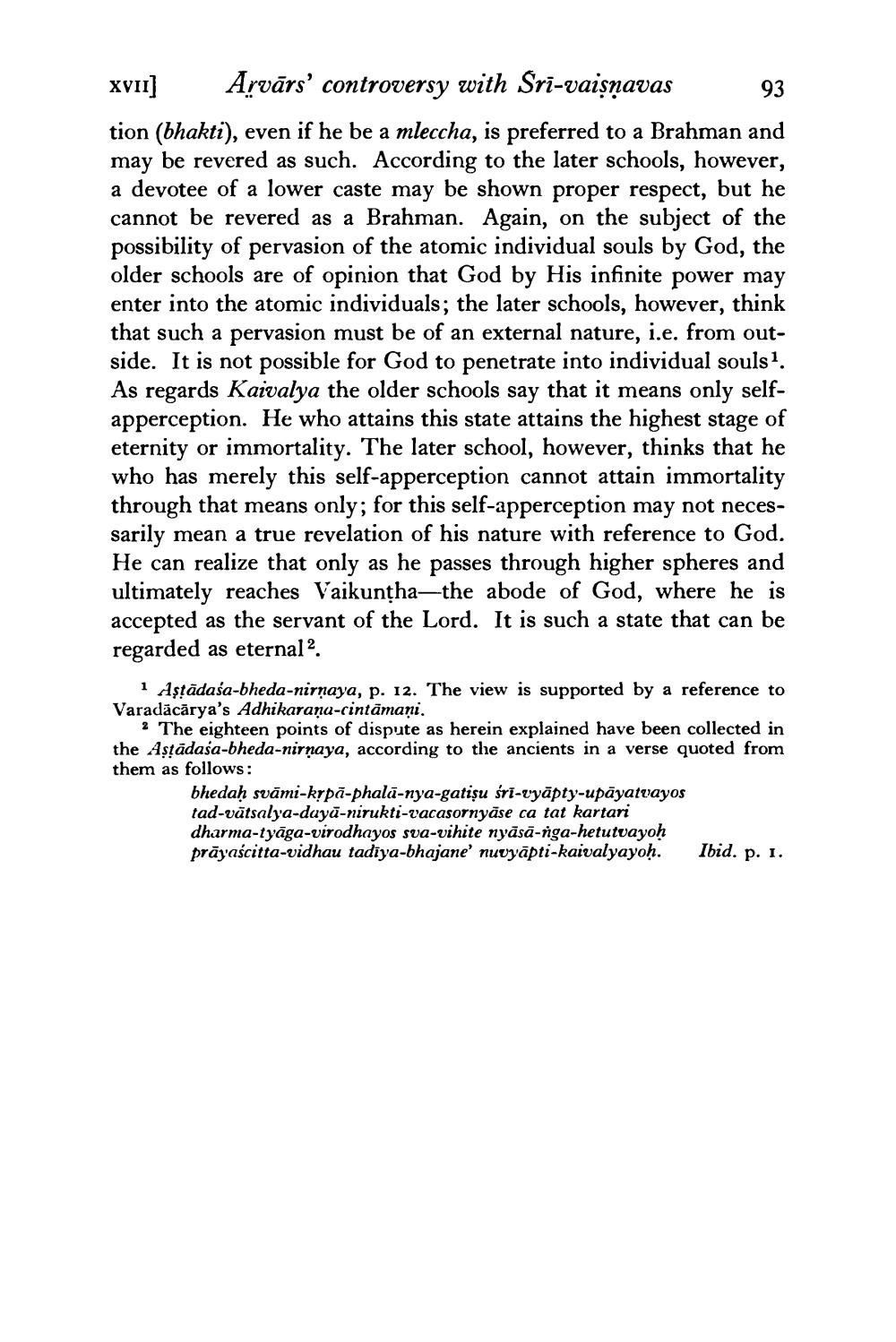________________
XV11] Arvārs' controversy with Sri-vaisnavas 93 tion (bhakti), even if he be a mleccha, is preferred to a Brahman and may be revered as such. According to the later schools, however, a devotee of a lower caste may be shown proper respect, but he cannot be revered as a Brahman. Again, on the subject of the possibility of pervasion of the atomic individual souls by God, the older schools are of opinion that God by His infinite power may enter into the atomic individuals; the later schools, however, think that such a pervasion must be of an external nature, i.e. from outside. It is not possible for God to penetrate into individual souls?. As regards Kaivalya the older schools say that it means only selfapperception. He who attains this state attains the highest stage of eternity or immortality. The later school, however, thinks that he who has merely this self-apperception cannot attain immortality through that means only; for this self-apperception may not necessarily mean a true revelation of his nature with reference to God. He can realize that only as he passes through higher spheres and ultimately reaches Vaikuntha—the abode of God, where he is accepted as the servant of the Lord. It is such a state that can be regarded as eternal2.
1 Aştādaśa-bheda-nirnaya, p. 12. The view is supported by a reference to Varadācārya's Adhikaraņa-cintāmaņi.
2 The eighteen points of dispute as herein explained have been collected in the Astādasa-bheda-nirnaya, according to the ancients in a verse quoted from them as follows:
bhedah svāmi-kopā-phalā-nya-gatișu sri-cyāpty-upāyatvayos tad-vātsalya-dayā-nirukti-vacasornyāse ca tat kartari dharma-tyāga-virodhayos sva-vihite nyāsā-nga-hetutvayoh prāyaścitta-vidhau tadīya-bhajane' nuvyāpti-kaivalyayoḥ. Ibid. p. I.




